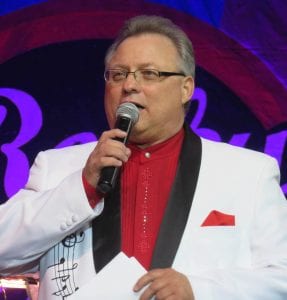Little Richard on stage was manic, combustible and outrageous – in other words: ahead of his rock and roll time.
Long before Prince, Michael Jackson, Mick Jagger, The Beatles, Tina Turner or Beyoncé, “Little” Richard Penniman revolutionized the look, style and sound of American music in the mid-1950s.
He died Saturday at 87, and perhaps the best epitaph for Little Richard came from his own lips when he said: “I am the originator. I am the emancipator. I am the architect of rock and roll.”
Muhammad Ali and Paul McCartney were more succinct when they called Little Richard “the king.”
How else to describe the man who kicked off “Tuitti Fruitti” in 1956 with the immortal soulful scream: “A-wop-bom-a-loo-mop-a-lomp-bam-bom.” That same frantic energy went into such Little Richard standards as “Long Tall Sally,” “Good Golly Miss Molly,” “The Girl Can’t Help It,” “Lucille” “Rip It Up” and “Oh My Soul.”
“Little Richard was there in the beginning, a real pioneer of rock and roll,” said Villages rock historian DJ Al Brady. “His early hits were filled with jam-packed, piano-stomping sounds. He was like a rhythm and blues version of Jerry Lee Lewis.”
Little Richard didn’t just sing, he wailed straight from the gut and the soul.
“His voice was more screaming than singing,” Brady said. “Richard’s music influenced generations of R&B artists.”
More than a singer, Richard was among the first generation of wild piano men. Like Jerry Lee Lewis, Little Richard brought a piano fervor to American music and it never went away.

“Paul McCartney, Elton John, Billy Joel and so many stars who could play a piano, and then turn it into a (rock) vehicle, worshiped at his feet,” critic Roger Friedman wrote. “It was the music and the showmanship. And the yell. Good Golly miss Molly.”

Al Brady said he worked a couple of shows with Little Richard.
“He was a sincere man who treated everyone around him well,” Brady said. “He said to me that he ‘only wished I could get the credit that I deserve’ for bringing his style to rock and roll. In most of his performances, he made it a point to share that with an audience.”
Little Richard more than earned that respect.
He was a charter member of the Rock and Roll Hall of Fame. Early on, future stars Jimi Hendrix and Billy Preston played in his band. The Beatles opened for Little Richard during the band’s early days in England.

“Paul (McCartney) would watch me every night when I was up on stage,” Richard once told an English journalist. “Paul idolized me and admired my energy.” McCartney covered “Long Tall Sally” with the Beatles. McCartney’s Beatle number “I’m Down” sounded like a tribute to Little Richard.
“Anything I do that’s screaming, it was (Little Richard),” McCartney once said in a television interview. “He was a great influence.”
Elton John also was inspired. “I heard Little Richard and Jerry Lee Lewis, and that was it. I didn’t ever want to be anything else,” John told Rolling Stone magazine.
But it was Little Richard’s stage show that influenced so many others. “The way you see Mick Jagger and Tina Turner walk all over the stage is what I used to do,” he once said. “That’s where they all got it from.”
The first time I saw Little Richard was at an oldies show around 1970 and he pranced around like a frisky, unbridled rock and roll colt.
Back then he was the star attraction at an oldies revival concert in Buffalo. Fifties rock was enjoying a renewed popularity boom, and Richard, along with the likes of Carl Perkins and Bill Haley, were hot on the comeback trail.
Those guys seemed older and tamer when they came on but not Little Richard.
I distinctly remember him standing on top of his piano and burning his way through “Good Golly Miss Molly” with youthful fire. After the number was over, he tossed his shoe into the rapturous crowd.
Little Richard was a man possessed by demons and angels through much of his life. More than once, he gave up rock and roll and turned to religion and gospel music.
Richard’s sexuality also was conflicted. He criticized homosexuality in his later years but once claimed to be gay. In 2012, he told GQ magazine he was an “omnisexual,” adding “Whatever I feel like, I go for.”
Regardless of his inner conflicts, Little Richard left a mark on music that will not fade.
“As Little Richard said, ‘I can be imitated but never duplicated,’” Brady noted. “And I agree.”

